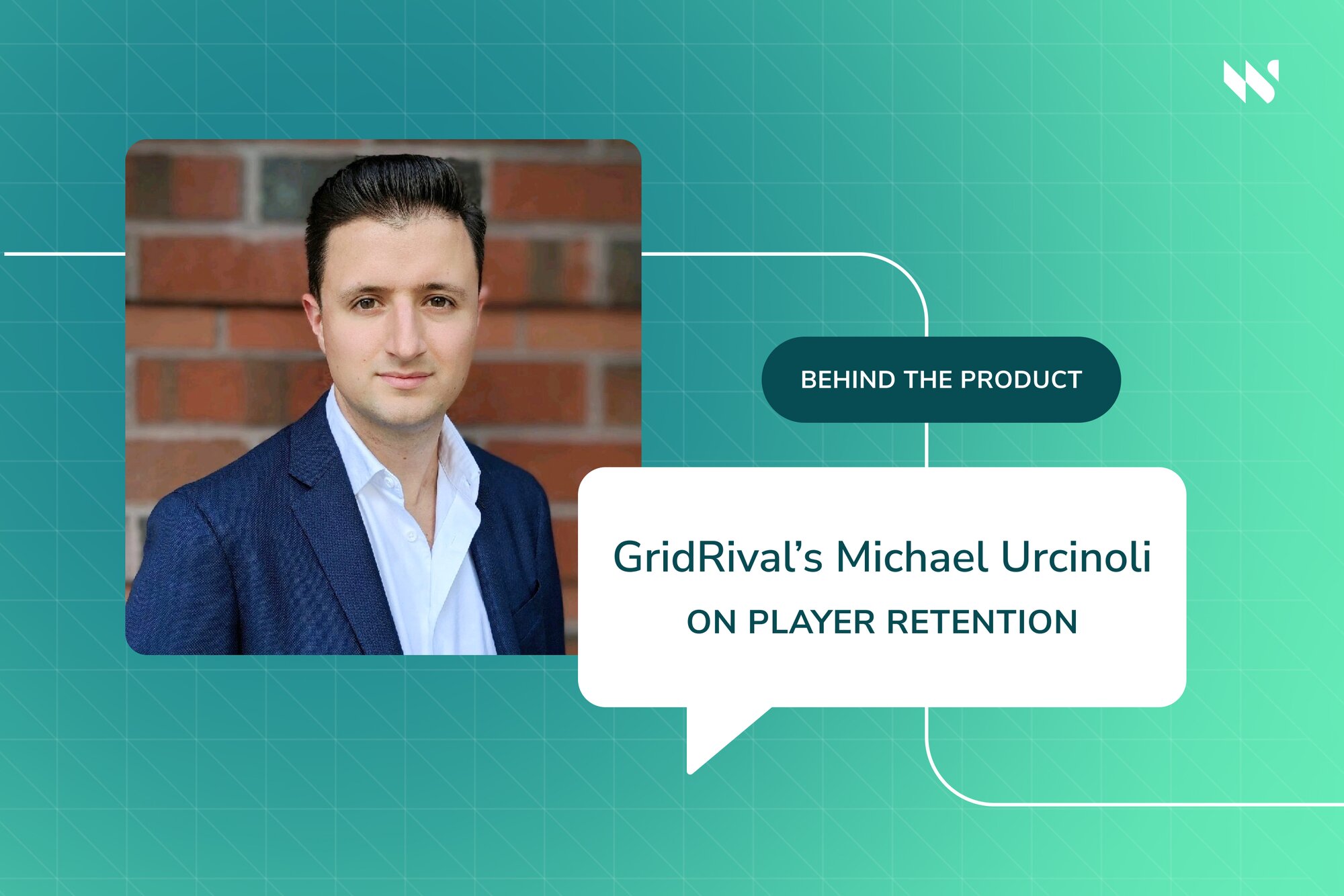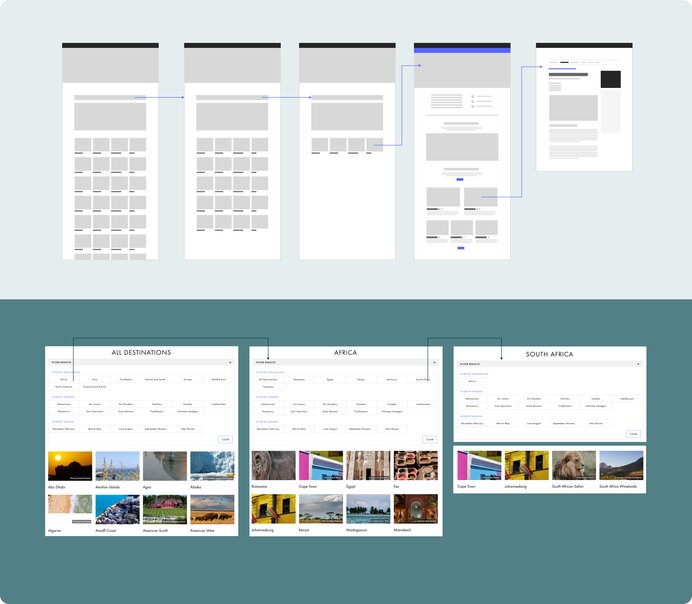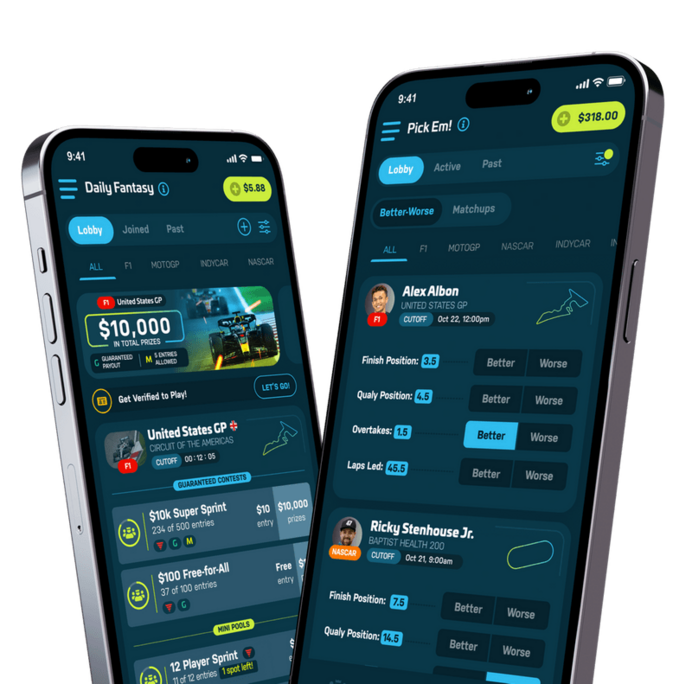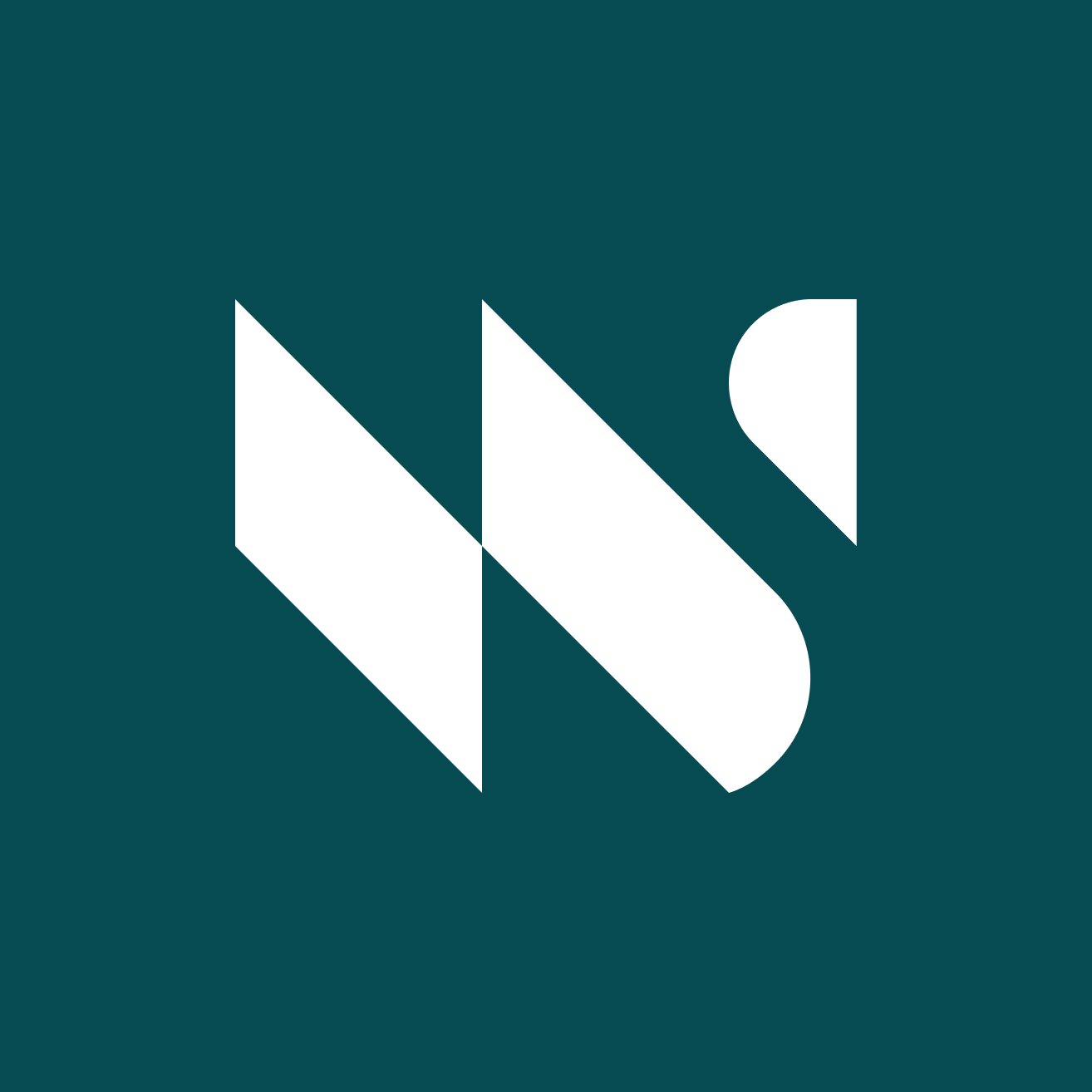Behind the Product: Why GridRival Takes Lessons From E-Commerce & Not Gaming
Michael Urcinoli, CTO at GridRival, shares insights from across his “industry agnostic” tech leadership career, why he prefers startups, and when and how to pick a development partner when building an app.

You could be forgiven for thinking that starting a great motorsports fantasy gaming app, like GridRival, would start with a detailed understanding of how similar fantasy team games work - like NFL Fantasy Football. But CTO Michael Urcinioli shares how lessons from time in e-commerce informed design decisions that have contributed to a frankly astonishing player retention rate.
Mike talks us through his tech leadership career - which covers spells in industries as diverse as fitness, travel, and men’s fashion - to explain his approach to creating brilliant products, as well as how he approaches his career. He gets into why he thinks it’s so important to remain hands-on in a senior role and how that philosophy makes startups particularly attractive.
He also shares his take on when to engage a development partner and what to look for if you want to avoid technical debt and an expensive wrong turn. Plus, he lets us in on who’s making his F1 fantasy team heading into the business end of a thrilling 2024 season!
- Mike’s career journey, from SoulCycle to Indagare
- Partnering with Whitespectre the first time
- Covid and the biggest pivot of his career
- When and why to hire a partner
- Early challenges at GridRival
- How taking an e-commerce approach boosted player retention
- Being industry agnostic and facing regulatory challenges
- The appeal of startups vs. big companies
- Mike’s F1 fantasy team picks (and GridRival tips)
Whitespectre has worked with Mike since 2019, when he was CTO at luxury travel brand Indagare. Since then we’ve worked with him for nearly six years across several different projects. We sat down with him to discuss his career to-date:
You’ve been a senior tech leader for over a decade, working across a range of industries. We first met you at Indagare in 2019, but could you tell us about what you were doing in the run-up to that?
Prior to Indagare, I spent about six and a half years at SoulCycle. I had a lot of success there building the technology teams, doing a lot of great work. A lot of people will think of Peloton as the technology cycling company. But, if you look under the hood, what SoulCycle accomplished with technology was absolutely incredible, especially given the context of the time. SoulCycle was kind of at the forefront of boutique fitness becoming a popular trend.
We operated in a world where we built a lot of custom software because the gym management industry didn't have a specific concept for indoor cycling as we know it now: pay to play without gym memberships, credits for classes, all that stuff. So we got ourselves deep into the custom software world very early. And over those years, we built a ton of stuff.
And then I was just ready for my next challenge. SoulCycle at that point had become a big company with external governances and things like that. And I really wanted to get a bigger seat at the executive table; not just being in a, I won't say silo, but forever looked at as the technology expert at the table. Technology and custom software spanned the business, but there were just a lot of executives and decisions so I wanted to go smaller. I wanted to be at the board meetings, hearing what the investors are saying directly to me and not through osmosis.
I wanted to know the directives firsthand and then meet that moment and come up with all sorts of business ideas.
So that’s when you moved to Indagare?
The opportunity to join Indagare presented itself through a mutual connection - and I love the idea and the concept.
Indagare isn’t a household name like SoulCycle had become, but it's incredibly well known in the area that it operates in. The brand is incredibly strong. For anyone unfamiliar, it's a boutique travel agency for ultra-high net worth individuals. Indagare is the company that will navigate you through going all across the world and having life changing experiences with travel. They curate all of that.
And there was a really, really good business idea to commoditize some of that travel, you know, being able to make that online bookable. Even now that’s a niche the big players in the space can't really service. They don't know the clientele, the expectations, and those properties that well. You have to have a go-between to even get to them. They're not bookable direct so you need that relationship.
So we were setting out to build a travel booking system for the Indagare clientele, specifically for their exclusive usage that encapsulated all of the benefits that you would get with a custom trip designer. Which is what we were - people who curated travel experiences for the clientele.
Another important distinguishing factor is, Indagare runs on a subscription model and membership. There’s a strong community aspect. A lot of the members know each other, they've had business relationships, their kids play together, and all that sort of stuff. It's a very trusted, tight-knit community.
We were building something unique and I can't tell you how many development agencies I spoke to at that time, to just call it that for a moment.
I met you guys [Whitespectre] through a mutual connection. And I'm always nice and cordial, but I hire employees predominantly. My hiring strategy has typically shifted that way. But I was really impressed by Whitespectre’s approach.
What stood out at that time?
Nick [CEO] and the team at the time just believed in the idea as much as I did and came with the attitude of “we want to help”. That’s the kind of thing that’s easy to say but much harder to do in practice.
It was a case of them saying: we'll figure out what the team looks like, we'll figure out what the future looks like, but let's just get a couple of people together and let's see if we can get some designs done, some product stuff done, some mocks done, and then we'll figure it out.
And that's just not a typical approach in meeting anyone who would consider themselves to be a development agency and it definitely caught my eye.
I said, okay, yeah, this is something I definitely want to explore. And this was very early on in New York, I was probably only there a couple of months, and I was just starting to ramp up the employee hiring and trying to figure out what that looked like from a team structure point of view with the plans I had at the time.
So in the meantime, I said, yeah, let's get a couple of people from Whitespectre together and let's take over the Indagare website that hadn’t been touched in any meaningful way in a while. I was there by myself at the time, my goal was to build a technology organization from the ground up within Indagare. We put together a small team and we just hit it off right away. It really felt more like, and I don't mean sound like a sales pitch, an extension of my team more than typical contractors outside the organization.
Allison [CPO], Andy [UI/UX Design Lead], Nick, and the team really dug in with us and I thought if I have this going I could be a lot more thoughtful about who I'm hiring because this is starting off well.
We actually had a week-long onsite in New York where we did a deep dive of the design, product, customer flows, and all the data that we had at the time on our current customer base. And we walked through what the goals would be of building this platform and what the critical path is like: what would it take to have an Indagare member who hasn’t booked online - has only worked one-to-one with a trip designer - to then use this product and love this product?
The goal was for the product to deliver a similar experience as the trip designers are doing. So it was a tall order and that's from a blank sheet of paper.

COVID hit around that time, which was obviously a big problem in the industry you were in. How did that impact things at such a crucial point in development?
As a global travel company, we’d already dealt with Ebola, SARS, and avian flu. So, while in hindsight, it looks naive, we thought, okay, yeah, this is going to be a problem, but not what it turned out to be. I forget the exact timing, but I think it was rampant in the US within a month of those first onsite conversations with Whitespectre.
We all started to have to work from home and travel bans started hitting in Asia and Europe.
At that point you’d invested a bit of time into the strategy and idea. Did the situation necessitate a big pivot?
We have these big, grandiose dreams and the money to do this whole net-new platform - and then, within 30 to 60 days, it becomes something totally different.
We know we still need to build this tool, but we need to protect our capital. We didn't know how long it was gonna go on. We didn't know what was gonna happen. So I just had that open conversation with Nick. And credit to him on this one, it wasn’t easy for the Whitespectre folks at the time.
Both he and I knew, and credit to Melissa as well [CEO at Indagare], we kind of just looked 90 days ahead. We said, okay, we don't wanna lose too much time in terms of developing this and bringing this product to market and all of that.
We wanna move forward, but let's look at this as time boxing 90 days ahead. We had to look at what could we spend and what could we accomplish in that time period to keep the engagement going, to keep the team working, to keep process going, because our view of it, for the first few quarters of COVID, was it's going to be over at some point and we want to be first back to the market with a product.
We were prepping for rapid return to travel demands from our customers as soon as travel bans started easing. We knew they would want to get back out there so we wanted to be there with this product to be able to capture that at scale - to be able to service that clientele if every single Indagare member all of a sudden wanted to take a trip within the next couple of months. We needed technology to facilitate that, which was a lot for the team to do and we made a lot of tough decisions. We made a lot of pivots but it was a blessing and a curse.
The blessing of it is when you're faced with an existential crisis of your business, you really prioritize the critical path of what matters in what you're trying to build. So maybe some things we weren't focusing on as intensely in the start, we started to focus on a lot more once we were faced with this crisis for the business.
It was a case of saying, okay, we need to make sure the operation of the online booking platform interacts with the trip designers more. Whereas maybe before, when we were dreaming pie the sky, we were thinking way more about the pomp and circumstance of the customer experience in the digital realm.
We did everything we could to make a critical path roadmap to keep moving this platform forward, keep building it. But we were able to ruthlessly prioritize from a spend and a time spent perspective to make sure it works well. And then, we planned, after it goes to market, we could then build out all of the dream functionalities we had above and below it.
So yes, it was a massive pivot! It was the biggest pivot of my career, going from a complete white sheet of paper to full, never-been-made-before, custom-online booking engine for this type of travel and then that quickly became: we have to keep the business alive and we can't afford to lose this opportunity because the idea is still solid.
You mentioned working with a development agency wasn’t part of your usual hiring strategy. What made you opt for a tech partner at Indagare?
Being in technology, you're constantly pressed by other business units to reduce operating costs and to oursource. So, throughout my time at SoulCycle, we worked with a lot of contracting companies.
Unfortunately, I’d say others were a complete waste of time and money. And I’d say the “complete waste of time and money” group is way bigger than the “best in class” group. I think of Whitespectre in terms of best in class along with another agency that doesn’t exist anymore.
I had one really, really standout experience at SoulCycle with that other partner that made me believe you don’t need to choose two from cheap, fast, or good, as the saying goes. You can find a partner who gives you all three.
The outsourcing model that's often pushed upon technology leaders is to use contractors to reduce costs. But if you can find a resource that doesn't think of themselves as a cost reduction center, but a way to hire the best global talent in the world - and we can do that better than you can because that's all we think about.
So, from my previous experience, I knew it was possible to have a relationship with a company that wasn’t just a cost minimizer and a checkboxer but which could actually drive the business. Someone who can partner, come up with solutions end-to-end, from product design concepts to finished, published product and then beyond. When I met Whitespectre, I had the feeling “this is dialed in.”
It all goes back to the talent, right? When I work with a great partner I ask myself “would I hire these people?” I would always think, if I knew about this person before they worked for Whitespectre, I would 100% hire this person. No questions asked, I would hire them. I haven’t met someone that I'm like, wow, they really missed the mark on this person.
I can’t say that about a lot of the software companies I’ve worked with over the years.
As a serial entrepreneur at this point, who’s got experience of multiple early-stage startups, when do you think is the best time to engage a tech partner?
Immediately, it makes no sense to wait.
Here's the actual reason: once you hire someone that is an exceptional value-add to your team, every hiring manager says “I wish I had this person six months ago, a year ago. I wish that we had this person before we did this big project that's now live to customers and is a huge headache to maintain and run,” right?
When I had the, just the fortuitous timing that I got to Indagare and got introduced to Whitespectre right away. So I got to see that from end-to-end it was better to have the full life-cycle kind of with their partnership.
You can't buy time back. That’s why you have to get the right team together at the start as early as you can, because you can't buy time back. You want that time. And everyone who's worked on a project like GridRival knows that if you could double the team size, you’d cut 20-30% off the delivery date.
What would you say to someone who doesn’t think their project is mature enough for a partner like this?
Yeah, I mean, hindsight is going to be tough for them when they grow, right? In technology, we always say the decisions that are made early on in your technology stack are now the technology of your business.
So the frameworks and the processes and the protocols and all of that stuff, those come from your early employees. And you’ll never replatform. You'll never go back and rebuild the entire thing that you built in the first two years of your business when you're being super scrappy.
And that's why companies then go, okay, then there's all these different methodologies of how do we get away from the tech debt that we built in our early years, right? Oh, let's go to microservices. Let's break down this gargantuan problem into small pieces and then figure it out that way. Let's replatform or change languages or rebuild the entire stack at once. And those projects go on for years and never have the ROI you think they will.
Sometimes you're forced to do it. You absolutely have to change platforms, change languages, introduce new architecture designs and things like that, like as businesses grow, But I could tell you for certain, it's really hard to do those things.
There's a saying: you're so worried about the pennies, you're not thinking about the pounds. That's gonna come back to bite you in the future.

You started with a blank page at Indagare but you moved to GridRival with the project already underway. What challenges did you face?
There were challenges. And it relates to the problem that I just spelled out.
There was an architectural monolith and the team had taken the decision to break down the monolith via microservices - which can be done really successfully. But it’s a very delicate thing to navigate for a small company. And there wasn’t a cohesive strategy behind why that decision was made - the “why” behind it was missing a little bit.
What order of operations are we going to break this thing down by? Does it make sense to make these services for these business functions?
Massive credit to the team: there were just tons and tons of decisions that had to be made, but the business was still so early at that time, no one even knew what the business we were building for was going to be.
GridRival is a complex game, so it takes a while to understand. I spent a couple months building the context, understanding the problems and the business goals. Then once I had a clear picture of what I think the future is going to be for GridRival, that's when I bought Whitespectre in, because I was like, okay, I have an opinion I want to sanity check. I want to build a relationship between the Whitespectre team and the GridRival team and start moving forward with this with this directive of, you know, you can sum it up as reducing infrastructure cost. You know, if you want to put something boring on it, it's like reducing infrastructure cost.
And what ended up happening is we reduced our infrastructure cost by half. We cut half out of our infrastructure spend and we increased our uptime by whole percentage points and we increased our overall performance in the app by taking whole seconds out of the critical path of the game.
The game has several steps you have to take each week. We were able to take a second out of different endpoints of the interaction points of the game. So we were giving back our users time. We're two-thirds into our current race season and our retention in the game is up 25% year-over-year.
That’s impressive retention for a fantasy sports game — where so many players typically “set and forget” early in the season. What do you put that retention rate down to?
What I would credit it to is from the get-go, I’m a motorsports fan but I’m not a sports guy in general so I’ve never ever played fantasy football before or anything like that. And I didn't even think that there was fantasy for motorsports. I wouldn't even know what that looked like.
But when I was talking with GridRival before I became an employee, I said to myself, the principles of e-commerce 100% correlate to this product.
You have to think about this as a customer conversion for making a purchase online. I didn't look at it like a traditional game but as an e-commerce transaction.
When we talk about e-commerce transactions, we talk about the minimal amount of clicks to get from account creation to first purchase. We talk about the minimum amount of time in between all of those actions, being able to find things really easily.
I took those what I would call best practices and principles of e-commerce and said, okay, we need to focus on performance. We need to focus on reducing the amount of clicks. We need to focus on making our buttons “calls to action”. Lots of games have lots of buttons, but I said, let's take some e-commerce principles of guiding players through this.
Because no one's gonna watch a five-minute video of how to play GridRival. No one's gonna read a tutorial. They're gonna open the app and they're gonna start clicking. We need to bring eyes to the action of what you need to do to play the game.
Yeah, we took those principles of e-commerce and applied it to the game.
And of course, the traditional fantasy game is the NFL and that only runs over five months. But the F1 season is ten months and the NASCAR season is 36 races. So for us to have a 25% year-over-year retention rate, months past when the NFL would end, is crazy.
And we spent a big, solid chunk of time on that but it's not rocket science: make every interaction faster, make every interaction intuitive, make every interaction fun, so players feel like they're progressing.
You’ve worked in fitness, travel, and e-commerce in the past but, as a cash-based fantasy game, did GridRival present unique challenges from a regulatory and legal standpoint?
Every job I've taken has been a completely fundamental shift in industry served, which has come with technology challenges, business operations challenges, legal and regulatory challenges. Those regulatory challenges are also present in healthcare and fitness, so there’s always something forced on you by some governing body!
I don't care what business you're in. There's always some rule book to reference. But I consider myself to be industry agnostic. I go where my passion is, and what I'm personally drawn to as a consumer.
I had a recruiter once tell me that I'm a luxury consumer product and technology expert. And I said, “you said that, not me.” I have no desire to have that label. But I see where they're coming from just because, you know, all of the products that I've worked on are extremely polished.
But you can play a GridRival for free. You can take a soul cycle class for $19, right? But you have a luxury experience with a very high level of execution, which I would consider to be a luxury when you deal with some other digital properties out there - and you know it's pulling teeth to do simple actions.
When switching industries, I look to masters of their craft for advice. Listen to any podcast or read any book from a professional musician or athlete - someone who's done some crazy feat in their life - and they say it was the fundamentals that got them there.
You don't get to be an expert in something overnight, to be cliché. But I’ve always taken the fundamentals of what I've learned and applied my experiences to new challenges. For instance, I spent years navigating healthcare restrictions and restrictions on the fitness industry and personal data, and so I apply what I learned there to sports betting and real-money contests. You have to also do a really good job of navigating the rules and regulations of that industry but the end result is you have to deliver a really good product.
Anyone who reads this and hasn’t had to deal with anything regulatory, I’d encourage you to. I've always pushed people who work for me to do something regulatory, so if I’d done a PCI regulatory thing before, I’d go to someone on my team and say “hey you're going to run this and I'm going to back you through this whole process because you need to you need to add this to your toolkit.”
To build those solid fundamentals. I definitely try to give everyone on my team as much exposure to the rules and regulations of whatever business we're operating in and like and how to navigate them.

At this stage of your career as a CTO, what is it that attracts you to such a hands-on role at startups versus managing a big team at a larger company?
I learned early on in my career that you need to walk in both worlds, right? It does the business no good if I’m the representative of the technology team and I really have no idea what's going on.
The technology team is trusting me to represent and advocate for them and the rest of the company is trusting me to make the best technology decisions for the benefit of the whole business. I've always viewed it that I need to walk in both worlds in order to be successful in my job or in my career.
So yeah, I keep very close tabs on everything that's being worked on from both ends of the business and I try to combine them.
You know, when you go into a bigger organization, silos happen, red tape happens, and you know, I've always said like, I don't even need the CTO. I don't need a CTO title. You can call me whatever you want, I'm still going to find myself doing the exact same thing I'm doing right now: I'm going to be connecting product, technology, and the business in one cohesive unit.
Plus, I've just found that it's super exciting and fun - you get the most action when the company is smaller!
I have to make business decisions that an MBA should be making a decision on. And I have to go through a technology meeting where maybe a PhD would be better off making the decision that's being made. Of course, to be able to do that, I have to have really good teams surrounding me.
There's plenty of organizations that are large that do function that way but it’s just rarer.
In the end, I’ve always gone smaller just because I wanted more exposure at the next level up. I wanted exposure to the investors, wanted exposure to the board, I wanted that first-hand information. You know, instead of me coming to me second-hand or third-hand.
Now at this point in my career, yeah, I could probably go to a medium-sized business with 100 engineers and have access to the board and the investors - be leading a large chunk of the strategy of the whole business. But I only got there because I did this. If I’d stayed at a big company and never got the chance to get access to conversations I just didn't have access to before, no one would trust me to do that.
It would be much harder to transition. I chose to go to startups and get as much exposure to true startups to get as much experience as possible across the gamut.
Finally, as a motorsports fan yourself, who’s in your fantasy team at the moment?
All right, I'm competing in four fantasy teams that I care about. That's a pro tip for grid rival players.
If you only play in one league every season, you're only getting one season's worth of experience. If you play in four leagues, you get four leagues worth of experience, strategy four years worth of experience.
So in the grid rival employee league, where I'm unfortunately now ranked second, I've been leading all season but just recently lost first place…I’m running Norris, Piastry, Sainz, Colapinto and I have an empty spot that I have to fill for Austin. I'm going to wait to see what happens with Daniel Ricciardo.
I might make some moves around on my lineup. I’m looking to bring back Verstappen. I dropped him because he didn’t have complete confidence in the car, but I forgot just how salty he can be! And I don't think that car could have done what he did without him just being so angry at everything.
